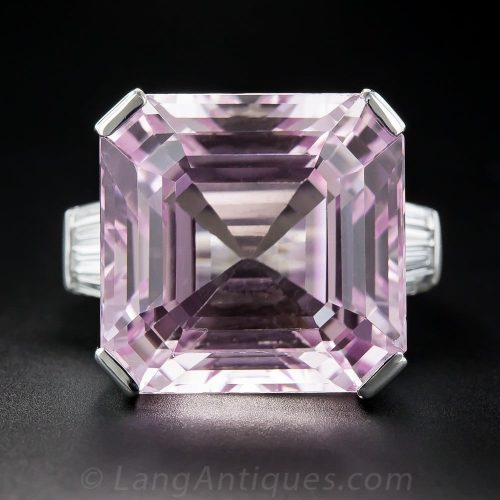
Kunzite, a variety of spodumene, was named for George F. Kunz who was the first to describe this gem in 1902. Gem kunzite is a rose-violet color with strong pleochroism. It is vital that the rough be cut with the correct crystal orientation or the finished gem could be colorless. Kunzite is subject to fading when exposed to strong light.
Gemological Information for Kunzite
| Color: | Pink, Violet and Pink-Violet |
| Crystal Structure: | Monoclinic |
| Refractive Index: | 1.660 to 1.676 |
| Durability: | Poor |
| Hardness: | 6 to 7 |
| Family: | Spodumene |
| Similar Stones: | Pink Sapphire, Tourmaline, Pink Topaz |
| Treatments: | Irradiation |
| Country of Origin: | Madagascar, US, Brazil & Myanmar |
Kunzite Care
| Ultrasonic Cleaning: | Never |
| Steam Cleaning: | Never |
| Warm Soapy Water: | Safe |
| Chemical Attack: | Hydrofluoric Acid Attacks Slowly |
| Light Sensitivity: | Kunzite Fades |
| Heat Sensitivity: | May Cause Color Change |
Sources
- Gem Reference Guide, Los Angeles: Gemological Institute of America, 1988. Pp. 229-231.
- Newman, Harold. An Illustrated Dictionary of Jewelry, New York: Thames and Hudson, 1981. Pp. 179.
- Schumann, Walter. Gemstones of the World, New York: Sterling Publishing, Co., 1977. Pp. 114.